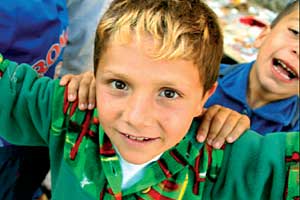UNICEF Guidelines on the Protection of Child Victims of Trafficking

Description
These guidelines are based on international human rights instruments and look at the protection of trafficked children from their identification up to their recovery and integration.
Summary
2. GENERAL PRINCIPLES
These principles shall be taken into account during all stages of caring for and protecting trafficked children in the country or place of origin, transit or destination, and in cases of internal trafficking.
2.1 Rights of the Child
All actions undertaken in relation to child victims shall be guided by applicable human rights
standards and in particular by the principles of protection and respect for children’s rights as set
out in the United Nations Convention on the Rights of the Child (CRC).
State obligations under the CRC apply to each child within the State’s territory and to all other
children subject to its jurisdiction. Therefore, the enjoyment of rights stipulated in the Convention is not limited to children who are citizens of a State, but must also be available to all children -
including trafficked children - irrespective of their nationality, immigration status or statelessness.
The involvement of child victims in criminal activities shall not undermine their status as both a
child and a victim, or their related rights to special protection.
States are required not only to refrain from measures infringing on children’s rights, but also to
take positive measures to ensure the enjoyment of these rights without discrimination.
Obligations deriving from the Convention apply to all branches of government, including executive, legislative and judicial. They include the obligation to establish national legislation and administrative structures; and the necessary research, information, data compilation and
comprehensive training activities to support such measures.
2.2 Best Interests of the Child
In all actions concerning child victims, whether undertaken by public or private social welfare
institutions, police, courts of law, administrative authorities or legislative bodies, the best interests of the child shall be a primary consideration.
2.3 Right to Non-Discrimination
Child victims have the right to protection, whether they are non-nationals, nationals or residents of the country in which they find themselves. They must be considered as children first and foremost. Every child shall have, without discrimination of any kind as to race, sex, language, religion, ethnic or social origin, birth, or other status, including immigration status, the right to such measures of protection as are required by his or her status as a minor.